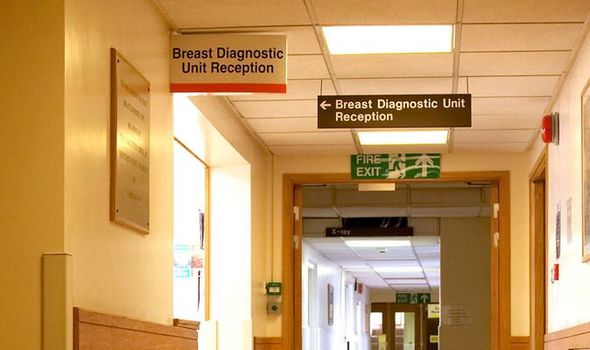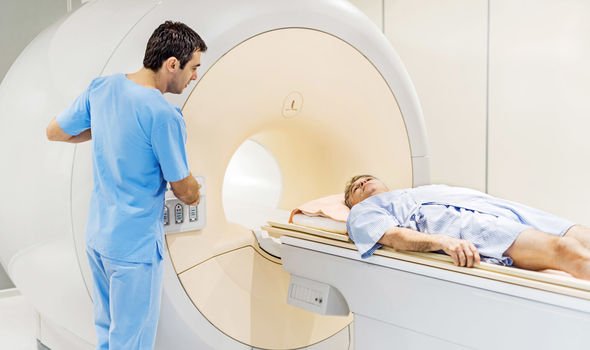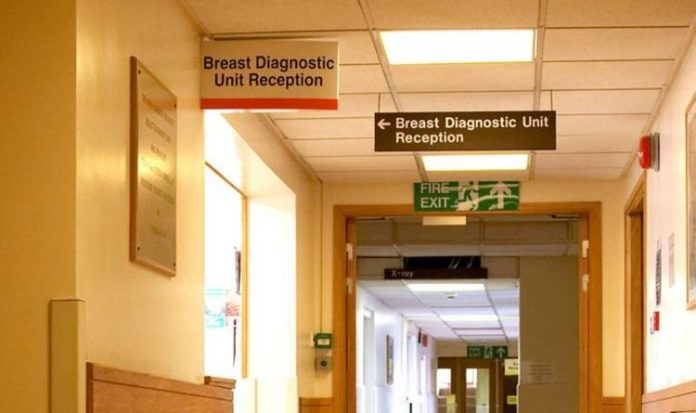
Many have missed important cancer diagnosis and treatment (Image: Getty)
The toll, described by one of the world’s leading experts as “colossal”, relates to the number affected during the eight-month COVID crisis. Lynda Thomas, the chief executive of Macmillan Cancer Support, said: “As the pandemic escalated, we know there was a significant drop in people visiting their GP with symptoms and being referred for cancer tests. This has meant a ‘colossal’ 50,000 people in the UK are now missing a cancer diagnosis because of the disruptions caused by COVID-19 – a number that could double by this time next year.”
In a report published today called The Forgotten C, the charity also warns there are an estimated 33,000 people in the UK who should have started treatment for cancer but have not yet done so because of the chaos caused by the pandemic .
Even under a best-case scenario Macmillan estimates it could take the NHS almost 18 months to clear the treatment backlog in England and Wales alone.
Professor Karol Sikora, a Daily Express columnist and former director of the World Health Organisation’s cancer programme, said: “These staggering numbers have always been my biggest concern.
“Disruptions to treatment are enormously worrying, but those people know they have a problem to solve.

People are missing potential live-saving scans (Image: Getty)
“According to these estimates, we have 50,000 missing patients where the cancer is growing undetected.
“I can scarcely believe the figures.
“Decades of work by oncologists across the country for cancer awareness are being undone.
“The time for reviews and committees is over, we now need action and proper support for cancer services.”
The cancer diagnosis crisis and treatment backlog have been caused by tens of thousands of people not going to visit their GP, as well as disruption to vital appointments, surgeries and treatments during the first wave of the pandemic .
In a direct plea to Health Secretary Matt Hancock, the charity begged for action to help people caught in the care backlog.
Macmillan wants a public commitment that vital cancer services will not be deprioritised during winter pressures and the second COVID-19 wave.
Figures from the Royal College of General Practitioners show just three in 10 GP appointments are now held face-to-face as millions of patients stay away from surgeries or are too frightened to ask for help.
In the three months between July and September, doctors in England delivered 38.6 million routine appointments with 68 per cent – some 26.3 million – carried out remotely.
During the same period last year they delivered 41.2 million appointments with 73 percent – or 30.1 million – held face to face.
Macmillan wants Mr Hancock to promise there will be no redeployment of cancer service staff or resources, and to guarantee access to COVID-19 testing and protective equipment when needed.
Patient Ruth, 55, from Norfolk, was diagnosed with breast cancer in December last year and her treatment was initially able to continue during lockdown.
But she now finds herself with cancelled check-ups and is unsure what the future holds.
She said: “It’s been a really concerning time during the pandemic as it feels like so many people living with cancer have been forgotten.
“Coronavirus should never be able to disrupt cancer care. While I felt lucky to be able to continue my treatment during lockdown I’ve now had three appointments for my cancer care cancelled and I’m at a stage where I have no idea what my next steps are for screening or for starting medication.”
Yesterday, hospital bosses in Nottingham cancelled some cancer operations due to “pressure on intensive care units”.
It came as officials announced the city and surrounding areas would be placed in the “very high” Tier 3 lockdown category from midnight tonight.
Macmillan is now calling on the Government to draw up recovery plans.
Mrs Thomas said: “Cancer care is at a crossroads and services cannot be shut down this winter. Cancer doesn’t stop for COVID-19 and neither can our health services.
“Macmillan is doing whatever it takes to support people with cancer and our NHS staff, but we need more.
“Governments need to promise every person with cancer they won’t be forgotten and ensure cancer services are protected, come what may.”
To find coronavirus levels in your area, please fill in your postcode below.
The Department of Health said: “Cancer diagnosis and treatment have remained a priority throughout the pandemic. More than 200,000 people were treated for cancer during the first peak. We urge people to come forward if they have symptoms.
“The NHS treated two non-COVID patients for every one COVID patient during the first wave of the pandemic and more than 870,000 people were referred for cancer checks between March and August. £3billion has been allocated to the NHS to prepare for winter, so the NHS can continue to provide urgent care.”







